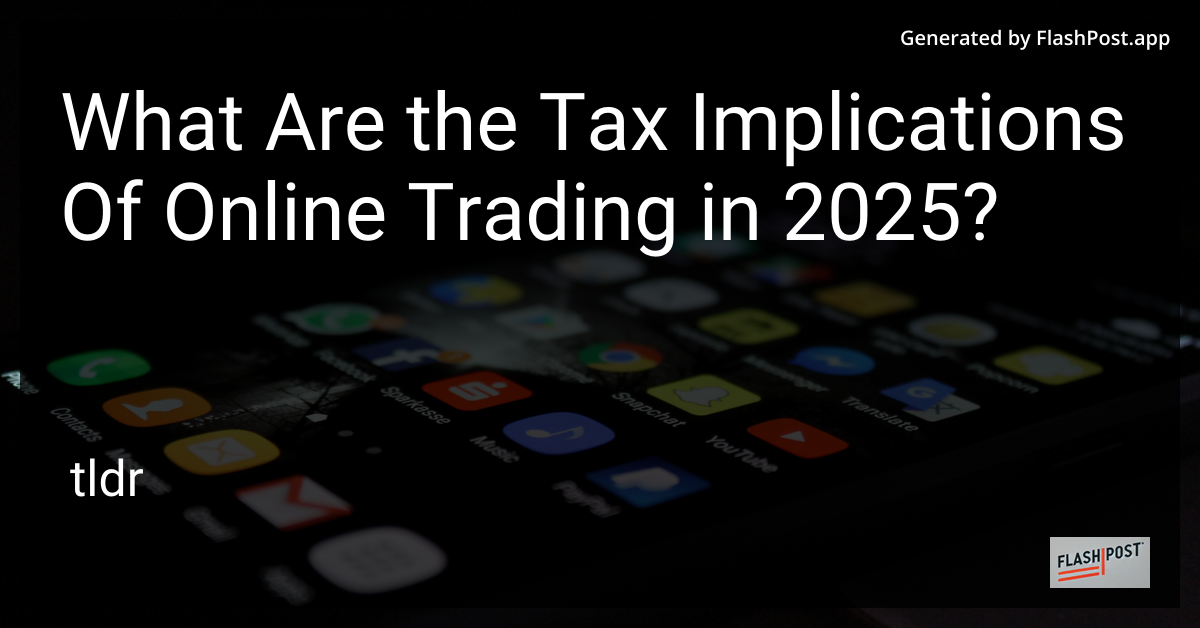
Online trading has become increasingly popular, attracting both seasoned investors and newcomers eager to explore the world of digital investments. As we look towards 2025, it's crucial to understand the evolving tax implications that accompany online trading activities. This guide provides a comprehensive overview of the tax landscape for online traders and what to expect in the coming years.
Understanding Taxable Events
Online trading involves various transactions, each potentially triggering a taxable event. Key taxable events in 2025 include:
-
Capital Gains: When you sell a security for more than you paid, you realize a capital gain. In 2025, both short-term (held for a year or less) and long-term (held for more than a year) capital gains are subject to taxation, but at different rates. Keeping abreast of your country's specific rate is essential as they tend to fluctuate based on fiscal policy changes.
-
Dividends and Interest Income: Income generated from dividends or interest will continue to be taxable. It's crucial to report this income accurately on your tax return to avoid penalties.
-
Cryptocurrency Transactions: With the rise of digital currencies, governments are keen on regulating cryptocurrency transactions. Tax authorities classify cryptos as taxable property, making both conversions to legal tender and direct purchases taxable events.
Reporting and Documentation
Accurate record-keeping is essential for reporting online trading income. Traders should maintain:
- Transaction records: Document all buy and sell orders with time stamps and prices.
- Brokerage statements: Regularly reconcile these with personal records.
- Cryptocurrency transaction logs: Record every conversion, initial purchase, and usage.
Deductible Expenses
Traders can offset parts of their taxable income by claiming certain deductions, notably:
- Trading Costs: Fees and commissions can often be deducted.
- Home Office Deduction: If you trade full-time and have a dedicated space for trading, this can be a significant deduction.
- Subscription and Education Fees: Expenses related to trading education, tools, and software might be deductible.
For those just beginning in the stock market, understanding these deductions can be overwhelming. Guides such as how to start stock trading as a beginner are invaluable resources.
Emerging Technologies and Their Tax Implications
The emergence of robo-advisors and AI in trading presents new tax challenges. It's crucial to understand how gains and losses from algorithmic trades are reported and taxed. Up-to-date trading hardware may also play a role in how expenses are classified, especially if they are essential for executing trades efficiently.
Compliance and Regulatory Changes
Tax laws are constantly evolving, and staying compliant is more important than ever. By 2025, updated digital platforms are expected to integrate tax reporting features automatically, reducing manual errors. However, traders are encouraged to periodically verify the accuracy of these reports.
Learning trading discipline tips is essential to maintaining compliance and meeting tax obligations. Discipline in both trading and administration will prevent end-of-year surprises.
Conclusion
Navigating the tax implications of online trading in 2025 requires vigilance, meticulous record-keeping, and a deep understanding of the tax laws applicable to your transactions. By staying informed and utilizing available resources, traders can not only minimize their tax liability but also stay compliant with the evolving regulatory landscape. ```
This markdown article is structured to provide a thorough understanding of the tax implications associated with online trading in 2025, while also being SEO-optimized with internal and external links to offer additional relevant resources.